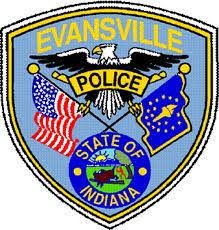“A LIFE JOURNEY OF A PROUD AND PATRIOTIC EX-MARINE, DAVID JONES-ATTY
(Ex-Marine David Jones To Be Keynote Speaker At This Evening Marine Ball)
By Xain Ballenger, The City-County Observer
 In the Heart of Downtown Evansville, on the 4th floor of 20 N.W. Third Street, attorney David Jones and his partners Paul Wallace, and Craig Emig have their law firm.
They have a combined legal experience of 100 years, with Jones handling more private litigation and corporate practice, Emig being the Assistant County Attorney, and Wallace representing an array of tri-state businesses and their owners in all matters.
Jones said his wife refers to him as “Forrest Gump, with a little higher IQ†because of how he has managed to be “at the right place, at the right time for a lot of stuff.â€
Jones’s story began in 1947 in a town called Elkton, Maryland. The town is right at the head of the Chesapeake Bay, where the corner of Maryland comes together with Pennsylvania and Delaware.
His next recollection was that his stepfather was stationed in Austria after World War II. Â Jones said that Austria was divided into Russian, British, French, and American zones and that the country was also occupied like Nazi Germany. Jones and his mother and stepfather were in the American zone; however, the town where the American base was located in Hitler’s birthplace of Linz, Austria.
Jones attended the first grade in an Army Dependents School for civilian families.  “That was pretty cool because when I came back to the States, I could probably speak as much German as I could, English, but I forgot all of it except for the swear words,†Jones jokes.
Jones graduated from Rising Sun High School in Maryland. He said it was a small school, and around the area, there were five white high schools and one black school.  “I had black friends that I ran around with, and then I had white kids that would curse you and say bad things because you hung around with black kids. And I was raised that that wasn’t something that you did, you respected all people and you respected all religions, that was something that was ingrained by my grandmother,†Jones said.
Jones went on to discuss his grandfather saying that he was a “big influence†on his life. He said that his grandfather lost his eyesight in World War I, and raised a family through the Great Depression. Jones said he wasn’t a hard man, but that he had “strong discipline.â€
Jones mentioned that when he came home from school he couldn’t do “squat†until his homework was finished.
“He had these rules, lights out at 10 p.m., He would go around and check all the doors and stuff. Make sure everything is locked. He got up at the same time… which was good for me because it instilled discipline,†Jones said.
Jones said the reason he wanted to go into a military academy was because of how much he looked up to his grandfather. “Everything I did in school was directed at that. I studied hard, I got good grades, I was in National Honor Society, I played varsity sports, I lettered, I was in Student Council, I was a regional parliamentarian for Regional student government in Maryland,†Jones said.
Jones said that he didn’t care which academy he got into, because “it was free education, and I could be an officer.† He had an appointment at the US Merchant Marine Academy at Kings Point, New York. “The Merchant Marine Academy is one of the five federal academies and it’s under the Commerce Department. And so, you are sworn in as a cadet Midshipman in the Naval Reserve, just like the cadets at the Naval Academy, and your uniforms are almost identical,†Jones said.
Jones said his path was to graduate from Kings Point and then pick a branch of service. “I did well in the military subjects I had, I was on the silent drill team, I went out for the boxing team, I was on the debate team, but when I hit the calculus it just crossed my eyes,†Jones said.
Jones said that while he was in New York, a blackout hit in the fall of ‘65.“Everybody freaking panicked because they thought it was like Russians or something. Up to that point, we’d never heard the word blackout,†Jones said.
In January of 1966, Jones resigned came home to Maryland, and took a job that he had in high school. He worked three different times for Edward Plumstead Associates, which built architectural scale models for some of the top architects on the East Coast.
“It was pretty cool because I would scale the drawings…I had T squares and triangles and I had to reduce the architect drawings down to the scale drawings so we could cut the plexiglass pieces to build the scale models of things,†Jones said.  During his time there, Jones said that this was when Vietnam was ramping up, so he called the Marine Corps recruiter and volunteered to join.
“I remember the recruiter says before I take you back, I gotta stop at the courthouse in Elkton, Maryland. We go in and the judge empties the jail. The Cecil County Jail. I’m sitting there in the courtroom with the Marine Corps recruiter and the judge says anybody that the Marines will take, I will dismiss the criminal charges,†Jones said. “But if they reject you, I’ll reinstate’ em, the recruiters tell me this is how he filled out his quota. Because nobody in your right mind would have gone in the Marine Corps in 1966 because that was the big buildup.†Jones said that one lucky thing was that they reduced the enlistment from three years down to two.
When Jones came back to his grandparents’ house and told them that he enlisted, they were talking about what to do with his belongings, when his grandmother asked, what branch of service Jones enlisted in, he said the Marine Corps. “She starts shrieking ‘Oh my God, not the Marines. Eleanor Roosevelt said Marines are overpaid, oversexed teenage killers. How could you enlist in the Marines? Nobody in this family has ever been in the Marine Corps. Why can’t you go into other branches like your uncle’s your grandfather?’†Jones said. “She runs upstairs shrieking, and my grandfather is sitting there real calm. And he says, ‘Well, son, why did you go into Marines?’ And I said, Well, sir, I think it’s pretty bad over there. And I want to go with the toughest and I said, if something happens to me, I want to come home and they’re not gonna leave anybody behind. Real calm, he said, ‘Don’t worry about your grandmother’. He said, ‘I’ll take care of it’, bang that was it.â€
In June of 1966, Jones officially went to Parris Island. He wanted to go into the infantry but was put in supply.  When asked what his experience was like, Jones simply asked if I had seen Stanley Kubrick’s  “Full Metal Jacket.”  “The boot camp stuff, that is so realistic. The precision in the marching, that getting in your face,  Jones said.
He said the reason those instructors were scary as well was because they’d been to Vietnam. “When that shooting starts, you can not freaking panic. It’s your life and everybody else’s. They wanted you as their expression was to have your head and ass wired together…It’s not a democracy. You don’t get to fricking vote on whether you want to do this or not. You do exactly as you’re told, your training kicks in, you react, you don’t think, you just react,†Jones said.He said the experience was “tough,†but that he had a sort of advantage because of his time at Kings Point. “I knew how to spit shine. I could put a hospital corner [on a bunk]. I knew that manual of arms because I’d been on the silent drill team. So you know I stayed as squared away as possible. And because I had played soccer in high school, I ran a lot. I could run all day,†Jones said.
Jones said that Marines were lost in boot camp as well. “There was a kid in the 45 range that brought the pistol back in. I don’t think it was intentional. He just froze and instead of pulling it back at an angle like you’re supposed to, it came back under his chin, and for whatever reason he squeezed off a round,†Jones said.
“I remember in other training, you had this physical readiness test and we had to crawl under barbed wire and they had live machine gun fire going over the top and then you got up and ran and you had to jump this ditch and you did it in sequence you know it was a guy in front of you,†Jones said.
“And the kid in front of me hit the ditch wrong and I think he broke both legs because he hit the side of it and I heard the cracking. And I’m already launched in mid-air and I came over to the side of him and I kind of looked at him laying there shrieking and I was thinking should I pick him up? And the next thing I know I got kicked in the helmet by a drill instructor, “Get your ass and move,†it (joining the service) was something that I never ever regretted. I’m still proud that I did it. I was glad I did it,†Jones said.
“I was stationed at Cherry Point, North Carolina when I came home. On Friday I was driving home before the weekend with three Marines from the base. We didn’t have the radio on and were listening to Motown tapes. When we got to Arlington, we saw Washington D.C. lit up and didn’t know what had happened. I took two of them to their homes in the Northeast part of D.C.
Martin Luther King had been killed that day, and the city was on fire. We drove over fire hoses and stopped for looters running across the streets. I dropped the other guy off in Baltimore, which was having riots,†Jones said.
The night before Jones got discharged in June of 1968, he said the guys asked him what he was planning to do. “I said, I was John Kennedy’s stand-in for mock elections in school and I’m going to be a bodyguard for Bobby Kennedy. The next morning a sergeant woke me up with tears in his eyes saying, ‘They shot your man, they shot your man,’†Jones said.
Jones said he was against the war when he came home, not because he was anti-military or down on the United States, he said it was because “we didn’t try to win the war.†Jones also said that approximately one-third of the guys in his boot camp platoon are on the Vietnam Wall In Washington D.C.
“I mean, I thought the South Vietnamese were really decent people. And they should have had the right to choose how they wanted to live. So I thought we did the right thing going in. I just think it got handled badly. Badly by the government and badly by the military because you could not fight a conventional war in those circumstances,†Jones said.
Jones also said that most information soldiers received was filtered. “We didn’t know about the Anti-War protests from the Stars and Stripes newspaper, the news was filtered. And of course, everything was censored in your mail coming in and your mail going out. So we didn’t know a lot of this stuff was going on. I didn’t until later. Later in my tour when I was getting close. There were some replacement guys talking about anti-war stuff and people taking drugs and you know, protests and the music was filtered,†Jones said.
When Jones came home he said he felt kind of “numb,†and on his second day home, he was at a party, where he was assaulted. “I’m standing in a corner in civilian clothes. I don’t know if I guess the way I looked and stuff.  The tan line across the top of my head, but some young girl came up to me…and started screaming and hit me with her fist. “You killed women and children. You killed women and
children!†Now I was like what the heck? I just shoved her away and kind of ran out of there, â€Jones said.
Jones ended up attending Lincoln University, one of the oldest historically black colleges in the country. “I remember my first freshman orientation book we had to read was the autobiography of Malcolm X and I still have that book and I think, The Baptism by Leroy Jones, another famous black poet writer,†Jones said.
“The first couple of months it was a little rough because if you opened your mouth you better be ready to defend yourself. But my attitude was, look, my family was too poor to own any slaves, so unless you’re going to pull a gun and shoot me, get out of my face,†Jones said. “So I pretty much got left alone. I just walked around on campus and two years later when I left Lincoln, I could walk into any black fraternity house on campus… I was accepted and I was most proud of it.â€
During his time at Lincoln, Jones said that he and some friends rented a farmhouse, he said there was a Jewish kid named Carl Grossman who ran track, he said they also had a “big hippie,†with long flowing red hair, and looked liked a Viking, and a hippie flower child pacifist. While he lived at the farmhouse Jones said a friend drove by and asked him to go to a concert with him. Jones relented and went, but upon arriving noting that there was bumper-to-bumper traffic.
They got as far as the New York State Thruway, but the traffic was still bad, so they got out and walked. However, it started raining so they decided to head back to the car. “We take this big tent… We just unzip it and treat it like a giant sleeping bag. I woke up the next morning in this thing and I wasn’t sure if I was alive or dead. While I’m sloshing around I open it up, and We’re…upstate New York outside of Woodstock…so I ended up going to Woodstock without knowing it,†Jones said.
Jones said that this was an experience that he would never forget. “I just remember walking in and along the road, it was like you didn’t have to know directions because you just got in the line of people,†Jones said. “And then on the sides of the road, every manner of bizarre stuff, people cavorting stark naked was ordinary, doing drugs or doing who knows what, dressed like who knows what, It was just hard to describe, it was being in the Land of Oz, I guess,†Jones said.
Jones transferred from Lincoln to the University of Evansville after two years. He was originally only coming for a summer, but his aunt and uncle kept saying that if he wanted to go to law school, then he needed to be at a school that would stay open. This was because Lincoln faced demonstrations and moratoriums, and it kept getting shut down. So Jones ended up transferring to the University of Evansville.
“When I go to Evansville I think it’s an overgrown High School, It’s just so not in touch with all of this stuff that’s happening on the East Coast. And the reaction. They had protesters here and there were hippies here but they were running at half speed rather than what you saw on the East Coast,†Jones said.
However, Jones said that he did think it was good for him because although he couldn’t relate to a lot of the kids, several guys started a fraternity that was basically ex-military, it was called XGI, Chi Gamma Iota. “That was a huge thing for me because I had people I could relate to, I could identify with, I could talk about things with, you couldn’t go up to another college student and talk about stuff that I had been through,†Jones said.
Jones first started to study law at Lincoln, he said that a student would take four courses in the fall, a January project, and then four more courses in the spring. During his January course, Jones signed up for a class called The Law of Civil Rights. He said the school brought in a professor from the University of Michigan, he said the professor would have his students study all the Supreme Court cases that dealt with civil rights. “The law of civil rights did it, that’s when I said, I want to be a lawyer. You can’t change this country, by picking up a gun. You’ve got to do it in the system, Jones said.
When Jones came to Evansville, he thought about going back east and going to law school; however, he started working for Judge Miller in circuit court as an intern. Miller pushed for Jones to go to law school in Indiana. Once Jones was accepted, he got heavily involved with politics. He was the first campaign manager for Kurt John, he was also asked by Larry Conrad to be on his political staff. “So I had a job in law school with the Secretary of State’s office but then it got to be too much politics, and I took a job as a bail commissioner and I was assistant director of the bail project in law school. I basically interviewed prisoners in the city lockup in Indianapolis from six at night till six in the morning,†Jones said.
Jones became a county council attorney in 1979 and became a county attorney in 1981 and held it until 1986. He was the City Of Evansville Corporation Counsel, the head of the City Of Evansville city law department from 2004 to 2011. Â He has been the Vanderburgh County Attorney since 2019.
Jones started his firm with Paul Wallace and his brother Keith, but after a few years, Keith wanted to go teach law school in China. Paul also wanted to go back to a big law firm, but Jones didn’t so he went out on his own and took on a series of associates.
Once Keith returned from China, he started an international adoption agency and he and Jones joined again, calling it Jones Wallace II. However, after a couple of years, Bowers Harrison made Jones an offer to mentor young trial lawyers. So that’s what he did, he went back to Bowers Harrison, where he met Jonathan Weinzapfel. Jones ended up becoming his attorney when he was elected Mayor of Evansville.
Jones again left Bowers Harrison in 2009 and started what is now called Jones Wallace number three, which is still in existence today. “I had offers from some big firms in Indianapolis to come up there but you know, my goal was not to make the most amount of money as a lawyer. It’s been about loving what I do,†Jones said. “ And, you know, there aren’t too many lawyers still practicing that are my age, but as long as I’m competent and having fun. I don’t want to stop. I love what I do, I love doing the government work, I love the public service,†Jones said.
After a lifetime of accomplishments and challenges, Jones wants to make sure he gives credit to his wife, Lauren, and his Maker









